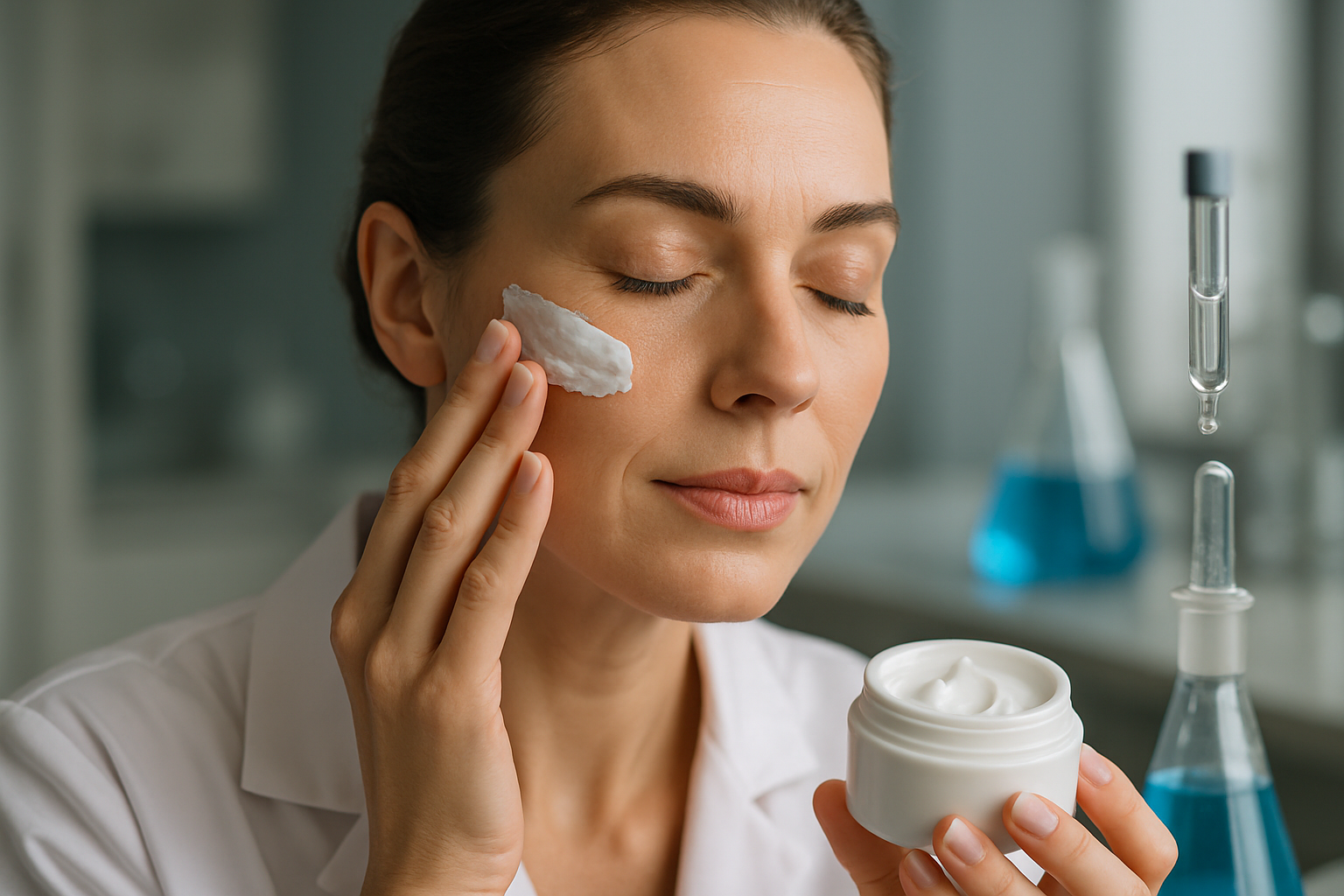The Artistry and Science of Skincare Formulation
Beauty is more than skin deep, and nowhere is this more evident than in the intricate world of skincare formulation. The creation of effective skincare products is a delicate balance of art and science, requiring a deep understanding of skin biology, chemistry, and consumer needs. Formulators must consider countless factors, from ingredient interactions to texture and sensory experience. This complex process involves rigorous testing, constant innovation, and a keen eye for emerging trends. As consumers become increasingly savvy about ingredients and demand transparency, the field of skincare formulation continues to evolve, pushing the boundaries of what's possible in beauty and self-care.

Key Ingredients and Their Roles
Skincare products are built around a carefully curated selection of ingredients, each chosen for its specific properties and benefits. Active ingredients like retinoids, vitamin C, and niacinamide are prized for their ability to address specific skin concerns. Humectants such as glycerin and hyaluronic acid attract and retain moisture, while emollients like ceramides and fatty acids help to smooth and soften the skin. Preservatives play a crucial role in maintaining product safety and stability. Natural extracts and botanical ingredients are increasingly popular, offering both functional benefits and consumer appeal. The challenge for formulators lies in combining these ingredients in ways that maximize efficacy while ensuring stability and sensory appeal.
The Art of Texture and Sensory Experience
While scientific efficacy is paramount, the sensory experience of a skincare product can make or break its success. Formulators must consider texture, slip, absorption, and even scent when developing new products. The feel of a cream on the skin, the way a serum absorbs, or the cooling sensation of a gel can significantly impact user experience and compliance. This is where the art of formulation comes into play, as formulators experiment with different combinations and ratios to achieve the desired sensory properties. Emulsifiers, thickeners, and silicones are just a few of the ingredients used to fine-tune texture and feel.
Navigating Regulatory Requirements and Safety
Skincare formulation is heavily regulated, with different regions having their own set of rules and restrictions. Formulators must navigate a complex landscape of permitted ingredients, concentration limits, and labeling requirements. Safety testing is rigorous, including stability tests, microbial challenge tests, and human patch tests to ensure products are safe for consumer use. The growing demand for “clean” and “natural” products adds another layer of complexity, as formulators strive to meet these consumer preferences while still adhering to regulatory standards and maintaining product efficacy.
Innovation and Emerging Technologies
The field of skincare formulation is constantly evolving, driven by scientific advancements and changing consumer demands. Nanotechnology is opening up new possibilities for ingredient delivery and efficacy. Microbiome-friendly formulations are gaining traction as research reveals the importance of skin flora. Personalized skincare, powered by AI and genetic testing, is emerging as a potential game-changer in the industry. Sustainability is also driving innovation, with formulators exploring new bio-based ingredients and eco-friendly packaging solutions. These advancements are pushing the boundaries of what’s possible in skincare, promising more effective and tailored solutions for consumers.
The Challenge of Stability and Shelf Life
One of the most significant challenges in skincare formulation is ensuring product stability and longevity. Formulators must consider how ingredients interact over time, how exposure to light, air, and temperature affects the product, and how to prevent microbial growth. This often involves a delicate balancing act between efficacy and stability. For example, vitamin C is a powerful antioxidant but notoriously unstable in formulations. Innovative packaging, such as airless pumps and opaque containers, can help extend product shelf life. Preservative systems must be carefully chosen to maintain product safety without compromising on the “clean” or “natural” claims that many consumers seek.
Consumer Education and Marketing Considerations
As consumers become more educated about skincare ingredients and formulations, the role of the formulator extends beyond the lab. There’s an increasing need for transparency and clear communication about product benefits and usage. Formulators often work closely with marketing teams to ensure that product claims are scientifically sound and compliant with regulations. This collaboration also influences formulation decisions, as consumer preferences and market trends play a significant role in product development. The challenge lies in creating products that are not only effective but also align with consumer values and expectations.
Sustainability in Skincare Formulation
Sustainability is becoming a central concern in skincare formulation. This goes beyond simply using natural or organic ingredients. Formulators are now considering the entire lifecycle of a product, from sourcing raw materials to packaging and disposal. This includes exploring biodegradable ingredients, reducing water usage in formulations, and developing solid or waterless products to minimize packaging. The concept of “blue beauty” is gaining traction, focusing on ocean-safe formulations that don’t harm marine ecosystems. These considerations add another layer of complexity to the formulation process but are increasingly necessary in a world where environmental impact is a top consumer concern.
The Future of Skincare Formulation
As we look to the future, skincare formulation is poised for exciting developments. Advances in biotechnology may lead to new, highly effective ingredients produced through sustainable methods. The integration of digital technology could result in smart skincare products that adapt to individual needs and environmental conditions. There’s also a growing interest in the mind-skin connection, with formulations designed to address the impact of stress and mental well-being on skin health. As our understanding of skin biology deepens and technology continues to advance, the possibilities for innovative skincare solutions are virtually limitless. The future formulator will need to be not just a chemist, but a multidisciplinary expert adept at navigating an increasingly complex and exciting field.




